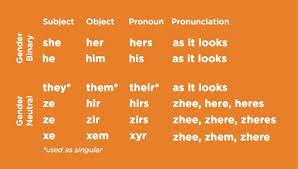Gwynn Scheltema
According to the Global English Monitor, as of January 1, 2019, the English language boasts 1,052,010 words. Apparently, we can thank The Bard for 1700 of those: addiction, assassination, bedazzle, cold-blooded, fashionable and managerare among them. And every 98 minutes another word is added. That’s almost 15 words a day! English is anything but static.
When I was working in communications for the provincial government, we regularly had meetings to discuss what was new and what had gone out of style in accepted grammar and usage. Sometimes, it got quite heated in those meetings, which just proves how strongly professional communicators feel about word usage. A lot of the discussion was around acceptable word choice, like persons with disabilities vs. disabled persons, or First Nations vs. Aboriginal.

But grammar, formatting and punctuation also made it onto the agenda. When proportional spacing became the norm on word processing programs, the double space after a period became a single space (standard now in all ms submissions). When emails were the new thing on the block, we had to refer to them as e-mail messages. Later we dropped the second word and they became e-mails. Still later, we dropped the hyphen and adopted the word email.
So when does a rule start or stop?
For the English language, there is no one body that decides. Our language is a living entity, changing over time. That’s what makes it so rich. While I firmly believe in “correct grammar” for clarity, I accept that sooner or later rules I hold sacred may indeed change. And that’s okay. It’s all a matter of common usage.
The grammar “rule” that I notice most lately is the changing use of the default pronoun.
The old default pronoun
The rule I learned was to use “he/his/him” as a default pronoun when talking in general terms, as in: “A journalist should always guard his sources.”
I like to believe that writers today know the importance of and support a less gender-based, less sexist approach to our language. So it makes sense to stop using “he” as the default pronoun. The question then becomes: what do we replace it with?
Substituting “she/her” is equally sexist. Flipping between “he” and “she” in the same piece of work would be altogether confusing. “He/she” is cumbersome. “It” loses the human connection. “One” is acceptable, but sounds like an old-fashioned lecture.

Some people prefer to use gender-neutral pronouns created specifically for the purpose, such as ze, sie, hir, co, and ey, but I haven’t seen much evidence of their use.
The new default pronoun
More and more each day “they/them/their” is emerging as the new default even in singular situations: “A journalist should not reveal their sources.”
Now before you get your knickers in a knot over it, using “they” in this way is nothing new. It appears in Old English from 600 years ago. Here’s a line from Chaucer’s The Canterbury Tales, ca. 1400:

“And whoso fyndeth hym out of swich blame,
They wol come up […]”
And if you are interested in the history of the singular “they” through history right from 1375, read this post from the OED website.
I do admit, using a plural pronoun for a singular is something that I still have to get used to, but I see its value, and as imperfect a solution as it may be, it’s the only viable one we have right now.
Is singular “they” really acceptable?
In business situations here in Canada, The AP Stylebook and The Chicago Manual of Style are generally the go-to authorities. Here is what they have to say:

AP Stylebook (2017 edition)
“They/them/their is acceptable in limited cases as a singular and/or gender-neutral pronoun, when alternative wording is overly awkward or clumsy.”
For example, to avoid the specificity of an individual’s gender, this use of their is acceptable: “The employee believed their position was in jeopardy.”

Chicago (17th edition)
“While this usage [they, them, their, and themselves] is accepted in those spheres [speech and informal writing], it is only lately showing signs of gaining acceptance in formal writing, where Chicago recommends avoiding its use. When referring specifically to a person who does not identify with a gender-specific pronoun, however, they and its forms are often preferred.”
What’s a writer to do?
My first inclination is to structure your sentence so you don’t need to make the choice. Make the whole sentence plural: “A journalist should protect their sources” becomes “Journalists should protect their sources.”
That said, if it is more respectful to do so, use “they” as a singular pronoun. Make sure you match your verbs correctly though: “They are visiting.” Not “They is visiting.”
For business writing, follow your accepted style guide.
For fiction, you have control, but consider your audience and genre. Strive for unobtrusive choices and good flow, and of course, consistency.
Last word
Above all, be aware and don’t fight grammatical change just because you don’t like it or you learned something a different way. Remember, our language lives and breathes and changes all the time. Contractions (don’t; isn’t; can’t; shouldn’t) were once considered uncouth, but now we all use them.
And remember, we can thank writers for opening up the English language to new rules and new words. From Shakespeare’s A Midsummer Night’s Dream, Act V, Scene I: “Where is our usual manager of mirth? What revels are in hand? Is there no play to ease the anguish of a torturing hour?”
Thanks, Will.











